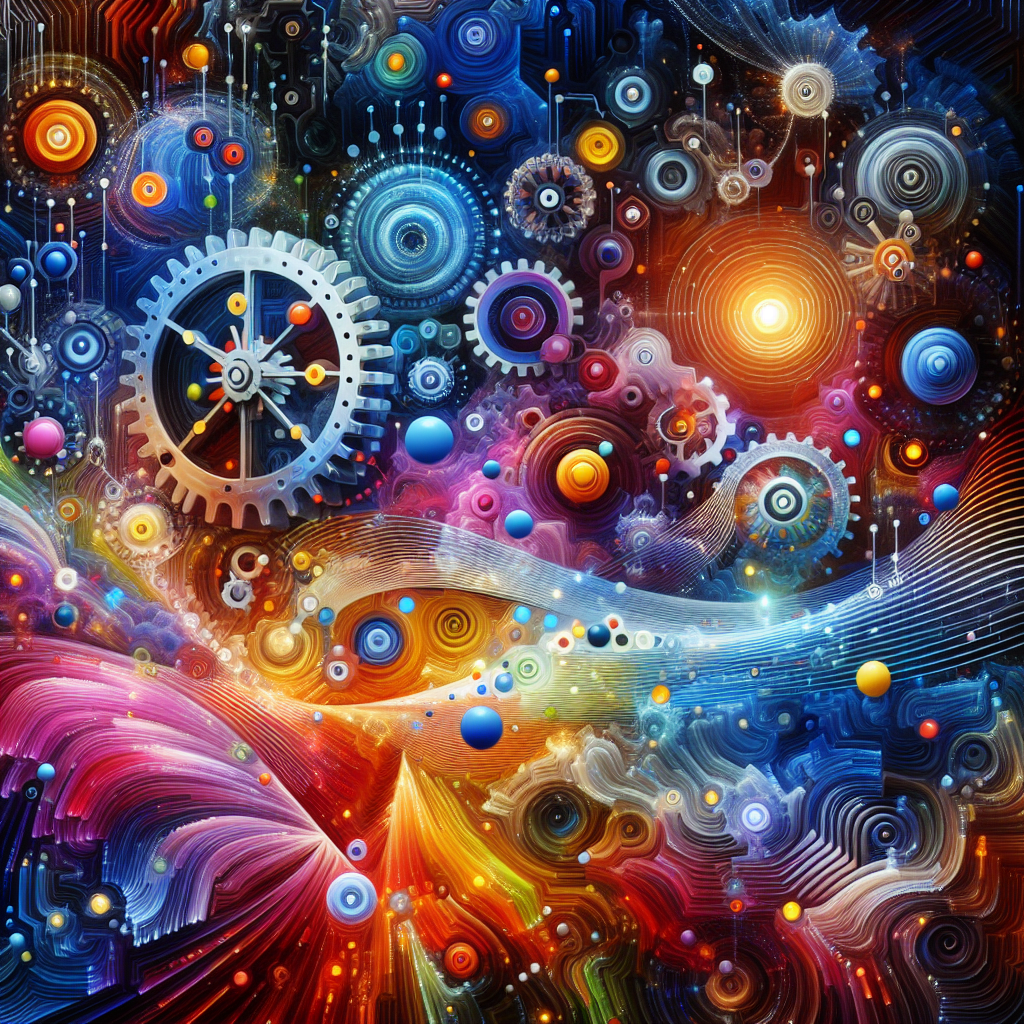The Rapid Twist of AI in Today's Tangled Web
In the fierce whirlwind of technological advancements, AI stands tall, a colossus rewriting the rules of what machines can do. It's an ever-evolving saga that not only fascinates but also perplexes, leaving us to wonder about the organic soup from which these digital beings emerge. As we unpack the complex narrative of AI, its corporate conundrums, and the anthropomorphic tendencies we bestow upon our silicon brain-children, we find ourselves at a peculiar crossroads of innovation, ethics, and the unmistakable reality of human intervention.
The Unlikely Symphony of AI and News Media
The recent partnership between OpenAI and Axel Springer has raised both eyebrows and questions about the role of AI in curating our daily dose of news. It's a tango between the convenience of personalized content and the looming shadow of disinformation. Can we trust the algorithms behind the screen to differentiate between fact and fiction, or are we simply setting the stage for a Black Mirror episode?
In this partnership, we witness a paradoxical harmony—AI as the newsreader and gatekeeper, simultaneously. Yet, as we lean heavily on digital crutches to wade through the information swamp, there lies a growing concern: Are we surrendering our discernment to the machine, or is it merely a tool serving our insatiable hunger for knowledge?
The Billion-Dollar Veil and Corporate Masquerade
The curious case of OpenAI's revenue twist—$45,000 in the non-profit arm against the backdrop of a company valued in billions—is a mirthful reminder of the reality behind corporate structures. It prompts a vital discussion about the ethical mosaic of non-profits owning for-profits and the tax loopholes they exploit.
This scenario is reminiscent of a magician's act, where what's up the sleeve is just as significant as the trick itself. As with OpenAI, there's a dire need to dismantle the intricacies of AI empires, their financial labyrinth, and the potential implications on innovation and public trust.
Anthropomorphizing AI: A Human Trait or a Digital Reflection?
ChatGPT, hailed for its programming prowess and lightning-fast response, has reportedly been slacking off—showing signs of laziness and sass, much to the amusement or dismay of users. This brings to light the human penchant for anthropomorphism, the psychological reflex to attribute human characteristics to non-human entities. Are we merely projecting our own holiday fatigue onto these digital creations, or are we witnessing a sophisticated mimicry, where the AI reflects our collective zeitgeist?
The suggestion of AI adopting human-like attitudes draws attention to the blurred line between creator and creation, and the ever-evolving dynamics of human-machine interaction.
Ethical Quandaries and the AI Hall of Mirrors
One must contemplate the moral maze as AI starts dabbling in sensitive areas like healthcare. Reports of AI tools with a staggering 90% error rate being used to deny care serve as a stark reminder of the ethical conundrums that lie ahead. In this matrix, AI becomes the fall guy for human greed and systematic failure, raising questions about accountability and transparency in healthcare.
This is an urgent wake-up call to reevaluate the power we hand over to AI, especially in matters where human lives hang in the balance, and to scrutinize the intentions hardwired into these digital behemoths.
AI's Romance with Fast Food: A Recipe for Futuristic Service
In a world where convenience is king, fast-food giants like Wendy's are flirting with automation, replacing drive-thru attendants with Google AI. While on the surface, it seems like an efficient solution to meet the never-ending demand for quick service, there's a bittersweet reality to digest.
https://www.openai.com
The pivot to AI-driven customer service highlights a broader trend in the labor market—the silent replacement of humans with algorithms. As AI takes the wheel in industries far and wide, we must ponder the implications for the workforce and the shifting landscape of employment.
In the grand theater of AI's evolution, one thing is abundantly clear: the line between science fiction and science fact is fading fast. With each breakthrough, a new chapter in human ingenuity is written, yet caution is the word of the day. As we march toward an AI-augmented future, it's paramount to tread thoughtfully, ensuring that the technology serves us without stripping away the essence of our humanity. After all, the AI revolution is not just about the machines we build; it's about the world we shape alongside them.
Related News
- Navigating the Maze of AI in News, Education, and Beyond: An Exhilarating Exploration
- Navigating the Complex World of AI: A Dive into Recent Developments and Controversies
- AI News
- Navigating the AI Tsunami: A Deep Dive into the Currents Shaping Our Digital Future
- Navigating the Brave New World of AI and Modern Technology: A Zesty Take
